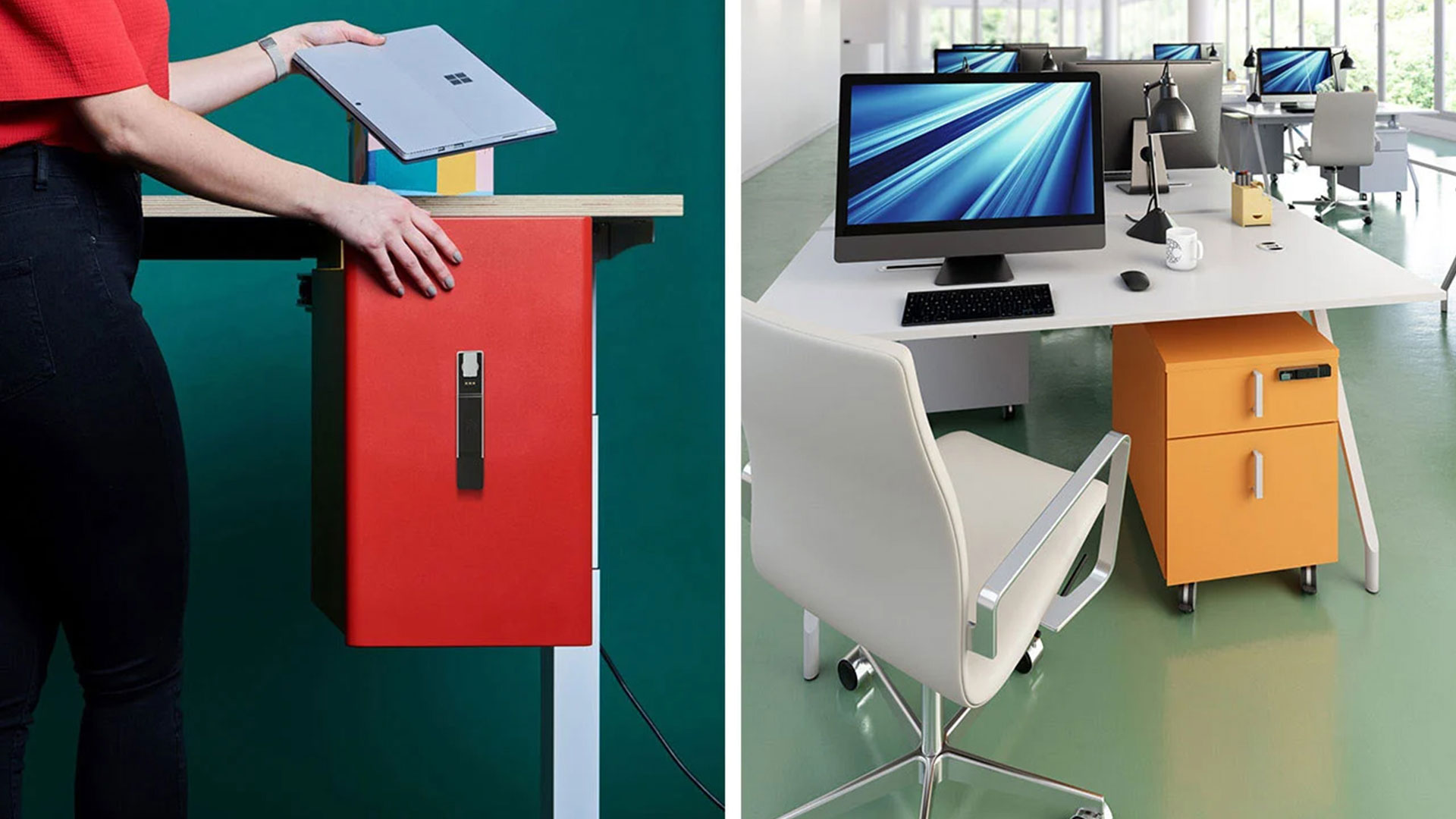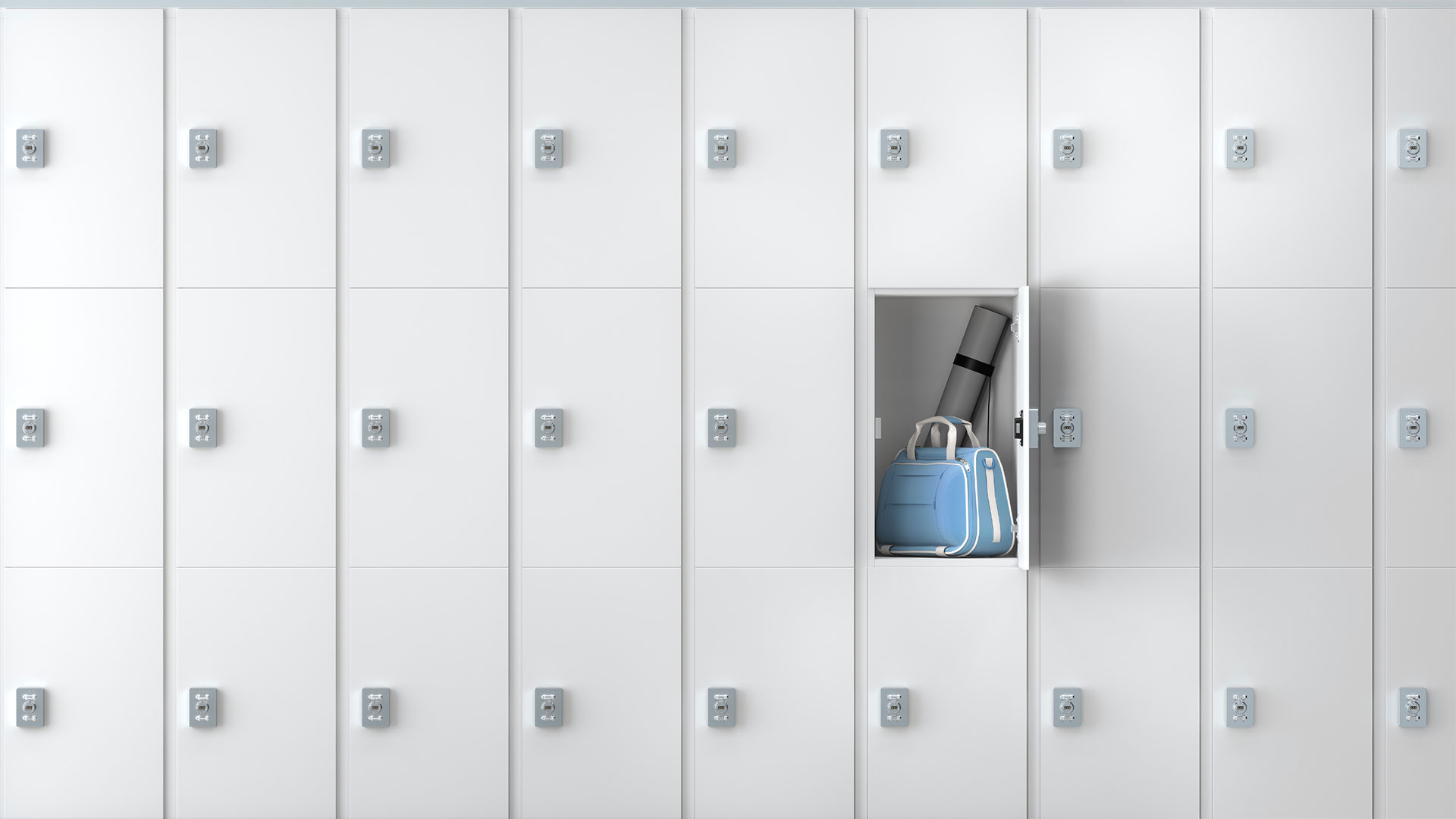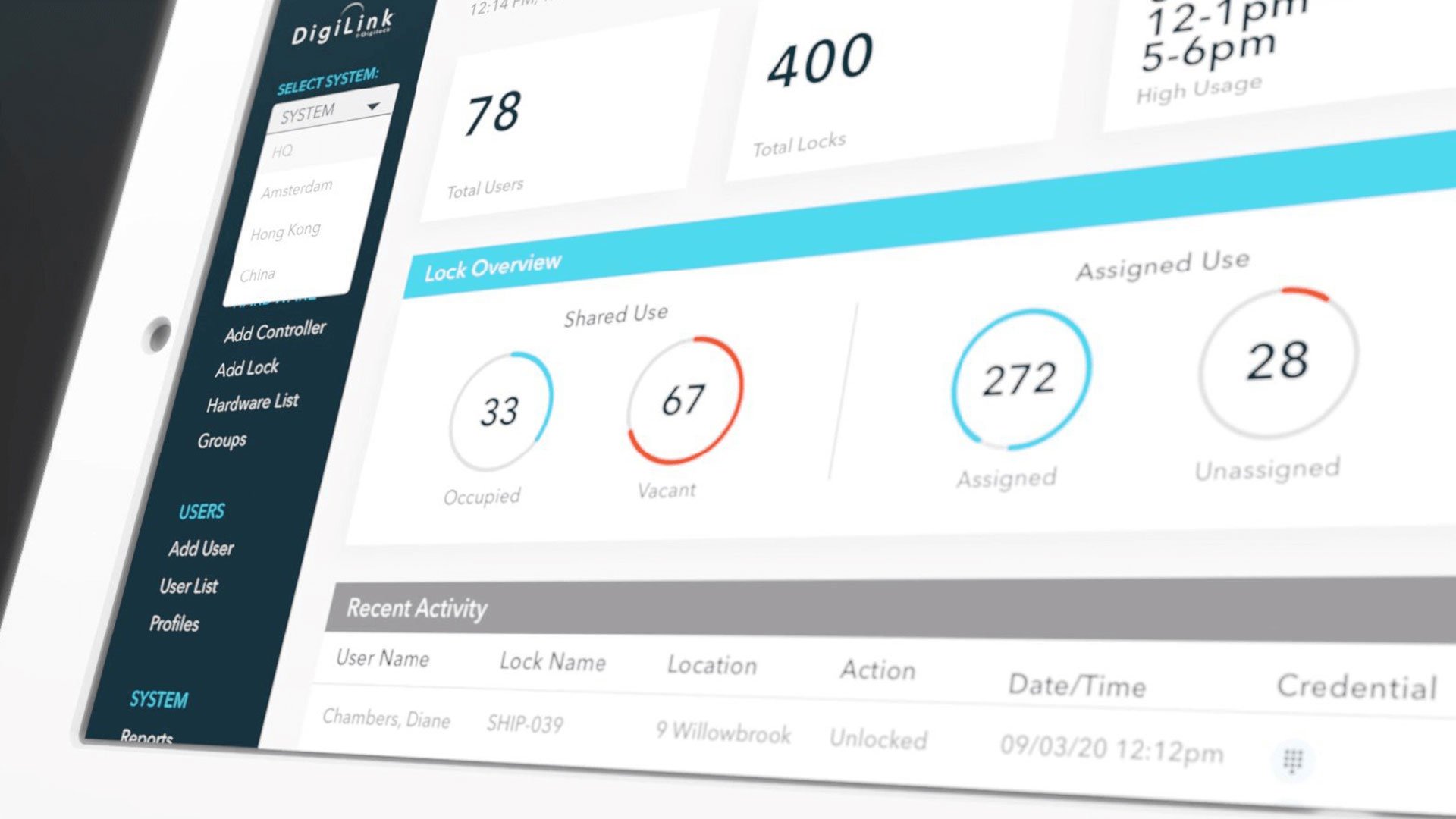RFID Lock Systems The Touchless Advantage by Digilock
Unlocking convenience and security with electronic RFID locks
March 9, 2023

As technology becomes an integral part of our daily routines, locks are changing too. With advancements in keyless access systems, RFID locks are gaining popularity for their security and convenience. Electronic locks are widely available — however, RFID technology is becoming a top choice for its touchless and hygienic features. This post delves into the advantages of RFID locking systems.
What is an RFID lock?
RFID locks are keyless locks that use Radio-Frequency Identification technology to communicate between a lock and User ID. RFID locking systems include a reader, an RFID tag or card, and a secure locking mechanism. The reader and the RFID tag exchange data through wireless communication, allowing for authenticated access without physical contact.
How do RFID locks work?
RFID locks are simple and easy to operate. Unlike traditional keys, keypad locks, or dial combinations that require physical contact with a lock, RFID systems provide access with the wave of an authorized credential. When a User ID — typically embedded in an ID badge or fob — is in close proximity to an RFID lock, the reader confirms the authorized signal and activates the locking mechanism to grant access. The underlying technology leverages secure encryption, making unauthorized access challenging and provides higher security.
How are RFID locks managed?
RFID locks can operate independently without being connected to a network. Digilock’s RFID Locks are available with non-networked Basic or Advanced management or as networked Smart Locks — unlike many lock manufacturers who only offer RFID locks as a part of a networked system. The management level you select depends on the number of locks and desired features. Here is a quick guide to Digilock management options that enable you to pair the RFID lock you want with the management level you need.
Cloud Management for Smart Locks
Networked Management provides 24/7 remote management and robust usage reporting for organizations looking for centralized control and real-time monitoring. Digilock Smart Locks are managed with DigiLink®, our proprietary cloud management software. Large companies with locks spread over multiple locations or organizations requiring heavy lock oversight will benefit most from RFID Smart Locks.
Advanced Management
Digilock Advanced management includes a dedicated mobile device, application, and electronic key. RFID Electronic Locks are managed on-premises and are perfect for businesses wanting a non-networked solution with select usage reporting capabilities and at-the-lock user access management.
Basic Management
For smaller organizations or those with simple needs, Basic Management is ideal. Locks are programmed directly using an electronic key, supporting up to 20 users. This simplicity translates into a cost-effective non-networked RFID locking solution and a reliable option for businesses concerned with cost management.
The rise of RFID locks
RFID's rise to prominence in security and access control speaks volumes about its adaptability and the growing demand for contactless solutions. Industries ranging from healthcare to hospitality, along with corporate offices and educational institutions, are adopting RFID locks as they offer a convenient and efficient method of secure storage access control. Companies like Digilock have been at the forefront of this innovation, developing innovative lock and management solutions that set industry standards.
Benefits of RFID technology
RFID technology is convenient and offers a variety of advantages for medicine carts, pedestals, file cabinets, locker locks, and more. If you are considering purchasing electronic locks, here are some reasons to consider RFID:
Touchless access
With hygiene a global priority, RFID locks offer a touch-free alternative for high-traffic settings where cleanliness is critical, such as hospitals, fitness centers, or the workplace. Users unlock their storage units with a simple swipe or tap of an authorized RFID card or fob, saving valuable time and enhancing the overall user experience.
Enhanced security
Traditional locks are vulnerable to lost keys or unauthorized duplication. RFID tags are highly encrypted, making replicating them more challenging and ensuring that only authorized individuals can access designated storage areas.
Seamless integration
Many organizations already use RFID-enabled IDs. The same RFID ID can be programmed to operate RFID locker locks, cabinets, pedestals, medicine carts, secured merchandise displays, or anywhere controlled access is needed. Simplifying secure storage management and seamlessly integrating with existing technology.
Adaptable to varied environments
RFID technology is versatile, catering to different settings and needs for shared or individual use to accommodate individual or multiple users in various environments.
Shared Use RFID locks: For simple day-use solutions, Shared Use allows credentialed users to access any available storage space with a valid credential. When the current user is done, the storage space is vacated, and the lock remains open and ready for another user.
Assigned Use RFID locks: Assigned Use allows managers to program individual RFID credential(s) to a lock for long-term assigned storage so one or multiple users can access a dedicated secure storage space. To open the lock, the user presents an authorized RFID credential to unlock the assigned unit. To lock, the user closes the door, activating the auto-relock feature.
Digilock — Pioneering touchless security
Digilock is renowned worldwide for being the pioneer in keyless lock solutions. Since developing the first electronic lock for personal storage in 1992 and launching the initial secure storage RFID lock in 2013, our commitment to innovation and cutting-edge technology has been evident. With over 40 years of experience and a multitude of utility and design patents, we continue to lead the industry.
Whether it's RFID, keypad, hardwired, or wire-free, Digilock offers top-notch secure storage solutions. Whatever your security needs may be, Digilock has the expertise and technology to meet them effectively. Just tell us what you need, and we'll make it work.
For further insights on RFID locks, contact us at sales@digilock.com.


